Mark 16:15 NIV
He said to them, “Go into all the world and preach the gospel to all creation.”
African Enterprise was founded in 1962 by Dr. Michael Cassidy. A man with a mission to evangelise the cities of Africa, through Word and Deed, and in partnership with the church. How wonderful that Michael is still here, looking back over the past years with all of us, and being grateful together, for the work that was done so far in the Lord’s Harvest field in Africa.
This year we are celebrating African Enterprise’s 60th anniversary. 60 years of sharing the Gospel, bringing aid to the needed, finding ways to overcome the unreachable.
All we can do is say thank you heavenly Father, for being able to bring the Glory of God to the African nations.
In 2013 Dr Stephen Mbogo became the third international team leader. A man with a heart for preaching the Gospel since he was a little boy. He once said: “We seek, with the help of God, to take this ministry, and the message of Christ it enshrines, to the territories that still remain unconquered with Christ’s love.”
Click on the link below to see Dr Stephen Mbogo’s message of prayer and giving for the 60th celebrations.
Video: 60 Days of the Gospel
Prayer Points – We are thankful to the Lord for the 60 years He has journeyed with African Enterprise, as we have sought to evangelise cities in Africa!
We will start our 60 Days of The Gospel from 29th July 2022. Please join us in these 60 days of prayer and thanksgiving.
Gratitude – Pray and be grateful for all the blessings given to us over 60 years, a milestone indeed. (29 July – 7 August)
Open heavens – Let us pray that God will continue to shine His light on the African nations. (8 August – 17 August)
Social Action – Let us pray for each one of the social action programs. Pray that we’ll be able to continue to reach out to more and more people each year to give them a hand-up in life, so that they may escape poverty and find new hope as well as sharing the wonderful news of the Gospel. (18 August – 27 August)
Proclamation – During proclamation week let us pray for thousands of people to gather in Jesus’ name, to hear the good news of the word of God. To drink the message in and to give their lives to Christ. (25 August – 4 September)
Empowering the youth – Pray that our Foxfire teams will reach the young people of Mombasa, show them who the True God is and win them over for Jesus. Pray that they will be able to see where their true Hope lies. (25 August – 4 September)
Loving the new believer – Pray that our new believers will be well supported and loved in a partnering church. Pray that they will continue to grow in their faith and become stronger in Christ. (5 September – 14 September)
As long time supporters of African Enterprise, begun by Michael Cassidy in 1962 to “Evangelize the Cities of Africa through Word and Deed in Partnership with the Church.”, the fiftieth anniversary in 2012 was one to celebrate. With Ann, who makes and sells jam to support AE, I took the opportunity to join a team from Australia, New Zealand, the UK, France, Belgium, Canada and ten African nations to share in the week of “Choose Zikhethele” mission to Pietermaritzburg, KwaZula Natal, South Africa on 12-19 August, and stay for the week of Jubilee following.
The first AE mission was 12th August 1962 and Michael Cassidy was at the PMB City Hall for the opening rally on 12th August 2012. Also present was Paul Birch, a Canadian who was one of the original team of five. He played the magnificent organ pictured. 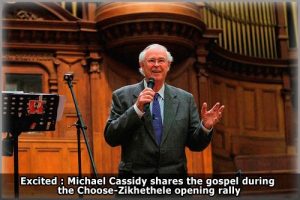
Over 600 events were planned in the week of stratified mission, ranging from nightly tent rallies in up to 8 venues around the city, a youth rally and a bikers rally, open air meetings, and visits to townships, informal settlements, government departments, factories, bus stations, the magistrates court, prisons, police and fire stations, post offices, primary, secondary and trade schools, colleges, universities, hospitals, aged care facilities, children’s and retirement homes, hair salons, disabled centres, shops, restaurants, businesses, street workers, banks, community centres, outreach events and feeding stations run by local churches – anywhere people could be found. Evangelists had come from near and far to share the good news of life in Jesus – that by all means they might save some.
The Australian and New Zealand team, (including a 92 year old from NSW) took part in church services and rallies, visited businesses, schools and hospitals, church outreaches, speaking and praying. Some with computer and graphic design skills employed those for AE work. We never knew what we would be doing each day.
There was a march of witness before the closing celebration rally. The Mayor of Pietermaritzburg City, Councillor Chris Ndlela, asked African Enterprise (AE) members of staff and the organisation’s supporters to pray fervently for God to solve the problems dogging his city with challenges like corruption, crime and racial and tribal friction.
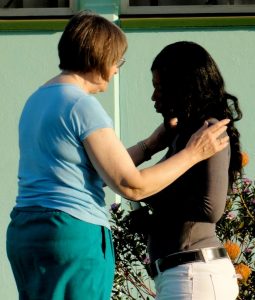 Based on the number of response cards received, a total of 3550 people made first time commitments, accepting Jesus as Lord. Another 1450 re-committed their lives to Christ during the mission. A long-term phase of the campaign has immediately kicked in, aimed at running a number of sustained activities that will help to create a model city that reflects the glory of God over a decade, according to the organisers.
Based on the number of response cards received, a total of 3550 people made first time commitments, accepting Jesus as Lord. Another 1450 re-committed their lives to Christ during the mission. A long-term phase of the campaign has immediately kicked in, aimed at running a number of sustained activities that will help to create a model city that reflects the glory of God over a decade, according to the organisers.
The week of Jubilee saw guests from the USA, Australia and the United Kingdom as well as other parts of South Africa join in a week of looking back and looking forward, connecting and reconnecting with the Team Leaders from South Africa, Tanzania, Malawi, Democratic Republic of Congo, Uganda, Kenya, Zimbabwe, Ghana, Rwanda and Ethiopia showcasing the work of AE in their nations.
I found this week particularly interesting, with the opportunity to meet team and staff. I had known of Bishop Festo Kivengere of Uganda as a teenager growing up in the UK. Festo had begun AE East Africa 40 years ago. Bishop Edward Muhima, past Chairman of AE International, spoke a number of times and presided over a moving communion service on the final day together.
Fifty trees were planted in memory of those who had played a significant part in AE’s history, and Edward planted the first in memory of Festo, who died in 1988. Some may remember his visits to Australia with African Enterprise.
During the Jubilee week a photo exhibition on reconciliation over 50 years was opened by Rev Frank Chikane, an Apostolic pastor and former advisor for Thabo Mbeki and member of the African National Congress, at the KwaZulu Natal Natural History Museum. He spoke later in the week on reconciliation. This was particularly appropriate as agents of the apartheid government had attempted to assassinate him in 1989!
“A Witness Forever,” hosted by AE to reflect on 50 years of city mission, civic engagement and leadership development by the organisation in South Africa was held on 21st August in the Pietermaritzburg City Hall. Over 300 invited guests heard KWAZULU Natal (KZN) Province Premier, Dr Zweli Mkhize, thank African Enterprise (AE) for taking a leading role in propagating the gospel of Jesus Christ and also for being outstanding peace brokers in South Africa and abroad. He paid tribute to AE for being an institution that has preached the gospel faithfully, “with footprints all over South Africa and elsewhere in the world… (and) also going all-out to work with communities.”
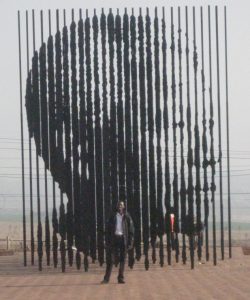 There were a couple of sightseeing opportunities, one walking around Pietermaritzburg’s historical precinct and the other to the Nelson Mandela Capture site, which had opened on the 6th of August. It is significant that Nelson Mandela was captured near PMB, a few days before the first mission in August 1962. The new centre is part of a regeneration project to reinvigorate the rural community of Howick.
There were a couple of sightseeing opportunities, one walking around Pietermaritzburg’s historical precinct and the other to the Nelson Mandela Capture site, which had opened on the 6th of August. It is significant that Nelson Mandela was captured near PMB, a few days before the first mission in August 1962. The new centre is part of a regeneration project to reinvigorate the rural community of Howick.
Since Michael Cassidy stepped down as International Team Leader, he has been investing much time mentoring young evangelists in Barnabas Groups in South Africa. Some 90 of the 200 in the groups were able to come together for the first time. I met three ladies from East London who were pleased to meet someone who had been praying for them!
The final event of a momentous fortnight was the gala dinner at the Alan Paton Hall of Maritzburg College. Some of the Aussie team had a hand in the stunning table decorations and place settings for some 600 friends and staff. Stephen Lungu (whose story is told in Out of the Black Shadows), completed six years as International Team Leader on this night. Michael and his wife, Carol, were honoured and thanked.
Stephen Mbogo, a Kenyan was inducted as the new ITL joining the International Board of African Enterprise with Jonathan Addison (Chairman) and Mike Woodall (Chief Operating Officer), who are both Australians.
I came back with 50 ZAR (less that $A6.00), lots of wonderful memories and a desire to make this great organisation better known.
Diana Dow (long time supporter of AE and coordinator of the Melbourne Prayer Group)
Stephen Lungu clutched his bag of petrol bombs tightly as he and his fellow gang members approached the large gathering inside the tent. It was just before 7 PM and a huge crowd had gathered to hear the Gospel in Machipisa township on the outskirts of Harare, capital of Zimbabwe. Stephen was the leader of a detachment of a dozen teenage thugs from the Black Shadows, a gang intent on stirring up trouble and rebellion against the white government of pre-independence Zimbabwe. And their intent on this particular evening in 1962 was to blow up the evangelistic meeting. “I want everyone inside that tent to die,” Stephen admonished his gang friends. “At 7 PM I will whistle and everybody throw their stones and petrol bombs into the tent entrance” (74).
With a few minutes to spare before the stroke of 7, however, Stephen stepped into the tent to listen. Now in his late teens, he was an angry and lonely young man, abandoned at the age of seven by his mother and left to fend for himself on the streets of Harare. His father had long since married another woman and moved to Malawi and he had lost contact with his younger brother and sister. He was illiterate, having had only four months of formal education and spending his younger years sleeping under a bridge, retrieving balls at golf and tennis clubs for a few pennies of income and scavenging food out of trash cans in the affluent white folks’ neighborhoods.
His anger and hatred had lately been fanned and given focus by his involvement in the Nationalist Youth League, which promoted a Marxist understanding of African history and advocated the violent overthrow of the minority white government of Rhodesia (as Zimbabwe was called then). Stephen and the Black Shadows aimed to contribute to their country’s liberation from white rule by stealing from whites and seeking to sow general chaos through thuggery and instigating riots.
While Stephen’s fellow gang members grew restless as 7 PM came and went, he continued to listen, first to a beautiful young girl from Soweto in South Africa telling of how Jesus had “transformed everything. There was a strange uncanny authority and resonance with which she spoke of forgiveness and a new start in life,” said Stephen, “and I suddenly felt very dirty and shabby” (75).
Then a Zambian preacher got up and spoke from Romans 6:23 about the wages of sin being death. These words rang in Stephen’s head as he reflected on all the hatred he felt towards so many people that had caused him to pursue a life of violence and chaos. When the preacher then quoted “2 Corinthians 8:9 – ‘For you know the grace of our Lord Jesus Christ, that though he was rich, yet for your sakes he became poor, so that you through his poverty might become rich.’ Suddenly I began to understand what Christianity was all about,” said Stephen. “It was for someone like me! I could identify with this Jesus. He had suffered in all the ways that I knew so well. Poverty, oppression, hunger, thirst, loneliness. I had known all of these, and so had he… My wages were death, but Jesus paid the price for me. On the cross he had become a nobody that I could become a somebody” (80-81).
Still clutching his petrol bombs, Stephen stumbled forward to where the preacher was speaking, even though it was still in the middle of his message. Ushers tried to escort him away, but the preacher forbade them, continuing with his sermon.
A few moments later, rocks pelted the tent and petrol bombs went off, causing a stampede out into the surrounding fields. Stephen’s cronies had gone ahead with their violent plan without him. But the preacher remained, with Stephen on his knees in front of him, pouring out through tears of anguish his story of abandonment and heartache, of anger and violence.
Through the providence of God, the preacher himself had come to Christ and found healing after having been abandoned as a baby by his mother, and shared with Stephen Psalm 27:10: “Though my father and my mother forsake me, the Lord will take me up.” After hearing this, Stephen prayed, “God, I have nothing. I am nothing. I can’t read. I can’t write. My parents don’t want me. Take me up, God, take me up. I’m sorry for the bad things I’ve done. Jesus, forgive me, and take me now” (87).
Stephen went back to his usual bridge to sleep under that night, but as an entirely new person. When he awoke and cleaned himself up, his career as a powerful evangelist got underway as he boarded a bus into the city and began preaching to the other passengers about what had happened to him the previous night. He was thrown off the first bus he tried this on, but when he exited the second one, a small crowd of seven people had been touched by his testimony and wanted to give their lives to Christ.
Stephen realised he didn’t quite know what to do, so he knelt down on the sidewalk with them and prayed, “God, I’ve met these good people on the bus just now, and I told them about how I found your Son Jesus last night. They’ve said they would like to meet him too, because I’ve told them how he loves everyone in the whole world. So, here they are.” Tears rolled down the faces of these new converts as they gave themselves to their Savior. More than forty years later, says Stephen, “I was still in touch with three of them – they became ministers of local churches” (99).
Besides telling people about Jesus, Stephen also felt he must turn himself in to the police and confess his crimes. “The love of Jesus arrested me last night,” Stephen told one of the senior policemen. “Last night I 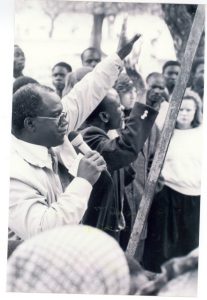 became a Christian, and I realised that what I have been doing is wrong” (100). The incredulous policeman listened to Stephen’s story and tried to plumb him for information on his gang. Stephen confessed to everything he had done, but sought not to betray his old friends. Finally, the policeman said, “Well, Stephen, if your Jesus has forgiven you, we forgive you also. There is nothing to be gained from keeping you here. You are free to go.” Another policeman held out his hand and said, “Here is some money – go and buy yourself a Bible” (103).
became a Christian, and I realised that what I have been doing is wrong” (100). The incredulous policeman listened to Stephen’s story and tried to plumb him for information on his gang. Stephen confessed to everything he had done, but sought not to betray his old friends. Finally, the policeman said, “Well, Stephen, if your Jesus has forgiven you, we forgive you also. There is nothing to be gained from keeping you here. You are free to go.” Another policeman held out his hand and said, “Here is some money – go and buy yourself a Bible” (103).
Though he did not yet know how to read, Stephen went out and proudly bought himself a nice hardcover Bible, which he treasured. With it under his arm, he went out every day on the bus to preach in the central market, telling everyone he possibly could about Jesus. His old friends from the Black Shadows gang found out about this and would come and heckle him, calling him “Bishop” or “Vicar” and kneeling down and pretending to cry in the street. One of them even pulled a knife on him. Stephen also sought out a church to attend, but found that the parishioners there weren’t very enthusiastic about his preaching every day out in the marketplace – it wasn’t “respectable” – and his bringing mostly shabby new converts into the congregation.
Word had got back, though, to the Dorothea Mission, the South Africa-based Christian organisation in whose tent crusade Stephen had just come to Christ. One day as he was preaching, a man named Hannes Joubert, a Dorothea missionary from South Africa who had just moved to Zimbabwe, approached Stephen with an offer to join a Bible school which Joubert was starting in Harare. Stephen was the first student and was amazed at Joubert’s faith in starting this new venture. For he “had no money. He had no building. He had no teachers. He had few books. He had only one student – an uncivilized twenty-year-old straight off the streets whose knowledge of Christianity came from Marxist-driven ideology, one evangelistic tent service attended with the aim of petrol bombing it, and a few follow-up meetings afterwards” (124).
Furthermore, Stephen spoke little English, could not read or write and hardly knew how to eat with a knife and fork or to take a bath without spilling most of the water out of the tub. Stephen took up residence in Joubert’s garage, as it was against the law at that time in Zimbabwe for a black person to stay in a white person’s home, but this new home was an enormous improvement over his former one under the bridge.
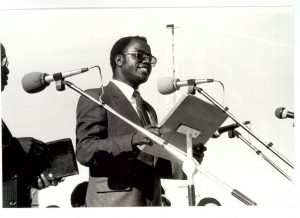 Stephen spent a number of years studying – learning to read and write, learning English, learning about the Bible and even learning about eating properly with a knife and fork! By the mid-1960s the Dorothea Mission welcomed him aboard as one of their missionaries and he began to go out preaching in the ensuing years on missions throughout Zimbabwe and in Mozambique, Malawi, Zambia, Botswana and South Africa. This was a time of major social and political upheaval in most African countries, as they gained independence from colonial powers or, in the case of Zimbabwe, continued to resist the oppression of the ruling white government.
Stephen spent a number of years studying – learning to read and write, learning English, learning about the Bible and even learning about eating properly with a knife and fork! By the mid-1960s the Dorothea Mission welcomed him aboard as one of their missionaries and he began to go out preaching in the ensuing years on missions throughout Zimbabwe and in Mozambique, Malawi, Zambia, Botswana and South Africa. This was a time of major social and political upheaval in most African countries, as they gained independence from colonial powers or, in the case of Zimbabwe, continued to resist the oppression of the ruling white government.
Reprieve for Zimbabwe did not come, however, until 1980 and for South Africa not until 1994. But it meant that Stephen and his colleagues were preaching the message of what many Africans considered “white man’s religion”. Many evangelistic rallies would invite violent protests and find the Dorothea missioners fleeing in a hail of rocks and bricks, or being beaten by a mob. Stephen and others were once kidnapped at 1 AM by members of the Malawi Congress Party Youth League, who were upset that a Dorothea mission in Blantyre had attracted more people than their political rally. Intense prayer by many others secured their release.
New impetus came into the ministry of the Dorothea Mission with the arrival from England in the mid-1960s of Patrick Johnstone, who later became well-known for his prayer guide, Operation World. Stephen and the others learned to build their lives around prayer, study and outreach. Thus mornings “were devoted to prayer and preparation, while each afternoon we began spending three hours out and about, visiting Christians to prepare for meetings, or visiting house to house. We would encourage converts in their new faith. By late afternoon…we would hold a simple open-air meeting to catch people’s attention on their way home from work. By seven we were down at the tent, preparing for the evening’s rally” (154). Johnstone sought to build up Stephen and other young Africans to take over the leadership of the evangelistic outreaches, something Stephen at first found incredibly daunting and difficult to contemplate taking on.
But he persevered and soon was leading missions all over southern Africa, besides getting married to Rachel, a Malawian, in 1969, with whom he has had five children. The most astonishing experience Stephen ever had in a mission came in 1975, back in Harare again, when he was exhausted after a whole day of preaching almost constantly.
He had just finished his last preaching assignment for the evening and made a halfhearted appeal for anyone wanting to come forward. “I unhooked the mike and was turning away from the platform, longing for a cool drink, when someone clutched at my trouser leg. I looked down. A little woman standing in front of the platform, looking up at me. I crouched down to have a better look at her. She was a bit of a mess. She was thin, looked ill and stank of alcohol. She was drunk. ‘I would like to pray with you,’ she said abruptly, staring at me in the most peculiar way” (191). Being exhausted, Stephen tried to fob her off to one of the female counselors, but finally prayed with her. But she kept hanging on to him, finally saying, “‘Do you know you are my son? … Back in Highfield,’ she said. ‘You and your brother John and sister Malesi. From what you said tonight, I know I was – am – your mother.’ Her words sunk in at last, and I felt the shock of it hit me like a physical force. The years peeled away and I relived the terror of that dreadful day. This small, shrivelled-up, ill lady was the glossy, round young woman that had abandoned my sister, my brother and me to probable death twenty years ago” (192-193).
Stephen struggled mightily to forgive his mother, but with the Lord’s help was finally able to do so. Amazingly, she grew in her Christian faith and enrolled in the same Bible school as Stephen had gone through and then joined the Dorothea Mission and became an evangelist herself! Stephen then tracked down his father in Malawi in 1986 and shortly thereafter led him to the Lord. He lived with Stephen and Rachel for some years and died at the ripe old age of 104.
Stephen was invited in 1978 to start up a new Dorothea team in Malawi and then in 1982 joined African Enterprise (AE), an international ministry focused on evangelising the major cities of Africa with teams in ten countries across the continent. Just at this time, he was given a scripture that portended his future.
Isaiah 55 reads: “I will send you to the nations that you do not know.”
New horizons opened up for this former street kid, as he soon found himself preaching not only all around the African continent, including a crowd of 250,000 in Addis Ababa, Ethiopia, in 1994, but all over the world – in North America, the UK, Ireland, Europe and Australasia. He even spent six months living and preaching all over New Zealand in 2004 in an effort to build up a solid base of prayer and financial support for AE there.
“Because I look at myself as a miracle of God’s grace,” Stephen says, “so I believe that the power of Jesus Christ to save sinners still exists. If he can change me, he can change anyone… Winning souls for Christ. It’s my calling. It’s my passion. It’s me”.
Stephen Lungu was the Team Leader for African Enterprise Malawi from 1982 – 2006. He then became CEO of African Enterprise International, taking over from the organisation’s founder, Michael Cassidy. Stephen Lungu was succeeded by Stephen Mbogo as CEO of AEI in 2012.
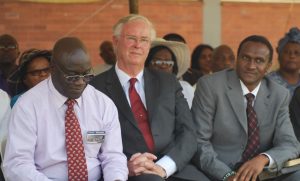
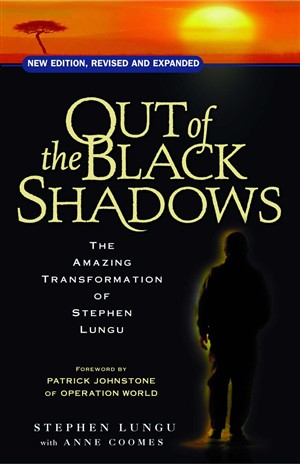
Getting to know Stephen Mbogo, our International CEO
Stephen Mbogo has a passion for the transformation of Africa through the power of the Gospel. He also has a heart for godly leadership, and its potential to transform nations. 
Stephen was born into a family with traditional, animistic beliefs. After his parents committed their lives to Christ, Stephen became a “pretending” believer. But that changed when, at 19 years of age, he turned on a cassette tape. Intending to listen to Michael Jackson, the recording on the tape was in fact a powerful Gospel message. Stephen responded to the Gospel and recalls that it was the “best day of my life, as I laid down my burdens and received reprieve”.
Looking back on his childhood, Stephen remembers that a primary school teacher told his mother that he “would amount to nothing” academically. Stephen’s mother cried, and then resigned from her government managerial job and went to study teaching – for Stephen’s sake. Today, Stephen credits his doctorate to his mother’s support and belief in him.
Stephen and his wife Rosemary now have their own kids, Victor (24) and Joy (18), and they have also welcomed several other kids into their family. Stephen takes delight in mentoring young people and providing guidance in terms of life issues, godly values and career decisions.
Life for Stephen has been a journey of faith. He recalls how, having a preaching appointment at a high school 65 km away, he once got onto a bus without money for the trip. Some drunk men on the bus paid his fare for him, but after preaching, he had to walk most of the way home.
Since becoming our international CEO in 2012, Stephen has had to trust God for provision for AE’s entire ministry. Altogether, he has been serving at AE for nearly 30 years. And after decades of extensive evangelism, leadership and community development in Africa, Stephen still holds fast to the faithfulness of the God that saved him.
At AE Australia, we couldn’t be more excited to be hosting the Stephen Mbogo Ministry Tour from the 29th of April and to the 15th of May 2018. 
Stephen is a dynamic communicator and leader, and is the International CEO of African Enterprise. He can’t wait to share with you about the many incredible stories of what God is doing through AE across the African continent. Last year alone, over 1 million people heard the good news of Jesus, and nearly 100,000 people made a commitment to follow Christ.
Stephen told AE Australia on Wednesday that he is feeling good and enthusiastic about his Australian visit. He said he wants to encourage Australian supporters to “be on mission with us.”
The work of AE in transforming Africa for Christ can’t be done without the prayer and generous support of Australians.
Stephen is passionate about seeing Africa transformed through the salvation of its people and the sound governance of its leaders. AE missions impact every level of society. This can range from equipping women with tailoring skills so they can escape a life of prostitution, to meeting with political leaders to encourage governments to lead justly.
Stephen has been a part of the AE movement since 1992 and was appointed as the organisation’s third CEO in 2013. He was born in Kenya in 1967 into a family that followed ancestral beliefs. Stephen made a commitment to follow Christ while was in High School – a decision that led his parents and grandparents to know Jesus.
He went on to complete his PHD at Biola University in California in Intercultural Studies where he specifically focused on motivations and leadership values among politicians. This background knowledge enables AE to not only preach the gospel but to advocate for positive political leadership across Africa.
Stephen will be speaking at churches, conferences, and other gatherings across Australia. He would love to meet with you and encourage you to be a part of what God is doing in Africa through AE. This is an opportunity not to be missed.
For full details of the tour, head to our Ministry Tour page. Feel free to also give our office a call during opening hours on (02) 98891799.
Hear Stephen talking about AE missions here.


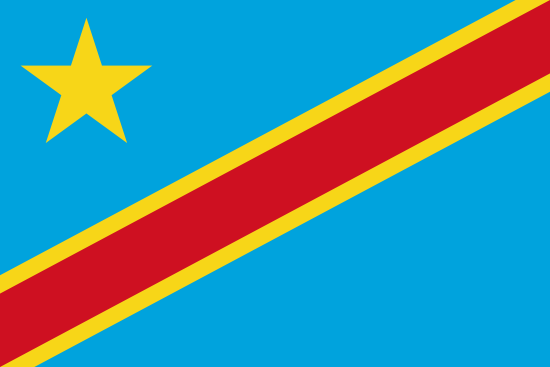
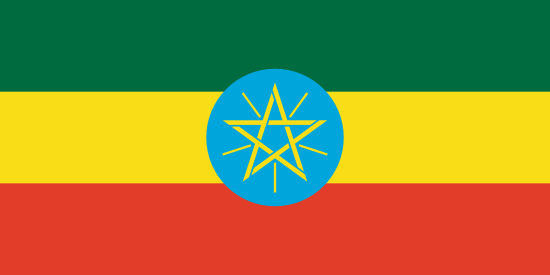

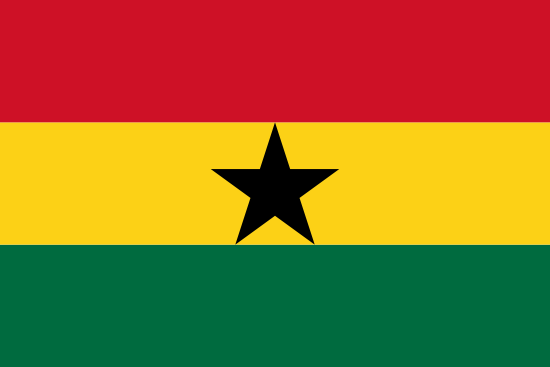


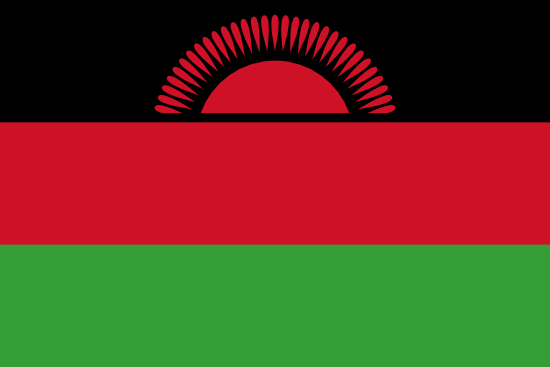


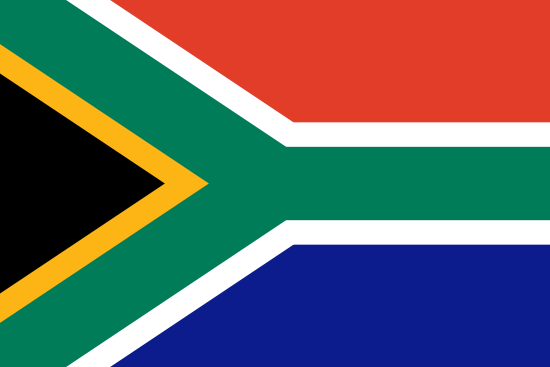



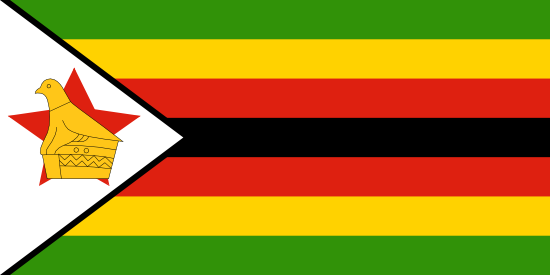


 Based on the number of response cards received, a total of 3550 people made first time commitments, accepting Jesus as Lord. Another 1450 re-committed their lives to Christ during the mission. A long-term phase of the campaign has immediately kicked in, aimed at running a number of sustained activities that will help to create a model city that reflects the glory of God over a decade, according to the organisers.
Based on the number of response cards received, a total of 3550 people made first time commitments, accepting Jesus as Lord. Another 1450 re-committed their lives to Christ during the mission. A long-term phase of the campaign has immediately kicked in, aimed at running a number of sustained activities that will help to create a model city that reflects the glory of God over a decade, according to the organisers. There were a couple of sightseeing opportunities, one walking around Pietermaritzburg’s historical precinct and the other to the Nelson Mandela Capture site, which had opened on the 6th of August. It is significant that Nelson Mandela was captured near PMB, a few days before the first mission in August 1962. The new centre is part of a regeneration project to reinvigorate the rural community of Howick.
There were a couple of sightseeing opportunities, one walking around Pietermaritzburg’s historical precinct and the other to the Nelson Mandela Capture site, which had opened on the 6th of August. It is significant that Nelson Mandela was captured near PMB, a few days before the first mission in August 1962. The new centre is part of a regeneration project to reinvigorate the rural community of Howick. became a Christian, and I realised that what I have been doing is wrong” (100). The incredulous policeman listened to Stephen’s story and tried to plumb him for information on his gang. Stephen confessed to everything he had done, but sought not to betray his old friends. Finally, the policeman said, “Well, Stephen, if your Jesus has forgiven you, we forgive you also. There is nothing to be gained from keeping you here. You are free to go.” Another policeman held out his hand and said, “Here is some money – go and buy yourself a Bible” (103).
became a Christian, and I realised that what I have been doing is wrong” (100). The incredulous policeman listened to Stephen’s story and tried to plumb him for information on his gang. Stephen confessed to everything he had done, but sought not to betray his old friends. Finally, the policeman said, “Well, Stephen, if your Jesus has forgiven you, we forgive you also. There is nothing to be gained from keeping you here. You are free to go.” Another policeman held out his hand and said, “Here is some money – go and buy yourself a Bible” (103). Stephen spent a number of years studying – learning to read and write, learning English, learning about the Bible and even learning about eating properly with a knife and fork! By the mid-1960s the Dorothea Mission welcomed him aboard as one of their missionaries and he began to go out preaching in the ensuing years on missions throughout Zimbabwe and in Mozambique, Malawi, Zambia, Botswana and South Africa. This was a time of major social and political upheaval in most African countries, as they gained independence from colonial powers or, in the case of Zimbabwe, continued to resist the oppression of the ruling white government.
Stephen spent a number of years studying – learning to read and write, learning English, learning about the Bible and even learning about eating properly with a knife and fork! By the mid-1960s the Dorothea Mission welcomed him aboard as one of their missionaries and he began to go out preaching in the ensuing years on missions throughout Zimbabwe and in Mozambique, Malawi, Zambia, Botswana and South Africa. This was a time of major social and political upheaval in most African countries, as they gained independence from colonial powers or, in the case of Zimbabwe, continued to resist the oppression of the ruling white government.



